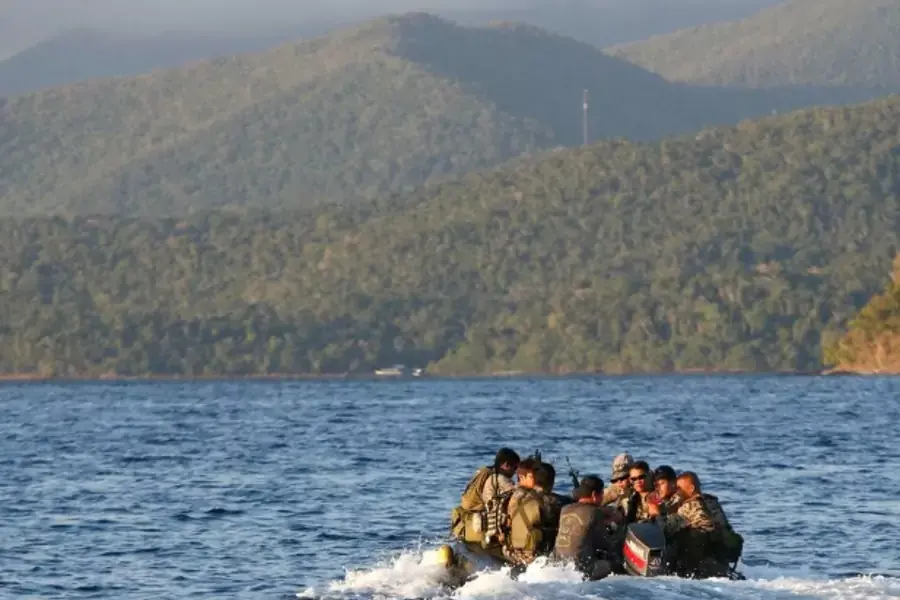Power Trip: Might China’s Struggles With Its Neighbors Bring War to Asia?

More on:
A version of this post also appeared at The National, and can be found here.
From the air, the Spratly Islands, a cluster of miniature rocks and sandbars 160,000 miles square in the middle of the South China Sea, are almost imperceptible. Even up close, the Spratlys do not look like much – a few islands have tiny rocky beaches or occasional makeshift buildings. A tiny contingent of Filipino Marines camp on a rusty hulk of an American World War II-era ship grounded in the Spratlys.
It is hard to believe these outcroppings could be at the center of an international dispute, let alone one that could lead to a future Asian war. But the Spratlys are claimed not only by China, which argues that most of the South China Sea is Beijing’s exclusive economic zone. The Philippines, Vietnam, Malaysia, Indonesia, and Brunei angrily retort that parts of the South China Sea belong to them, including areas that Beijing insists is China’s alone.
The Southeast Asian countries and China have been unable to resolve their overlapping claims to the sea, believed to be rich in oil and strategically vital – over five trillion dollars in trade passes through annually. The Philippines and Vietnam have asked an international tribunal to rule on what areas of the South China Sea are within Beijing’s exclusive economic zones. But any decision will be meaningless; China argues that the tribunal has no power.
The Philippines, Vietnam, and every other nation in Asia are preparing to combat China in other, far less legalistic and peaceful ways. In the past three years, under China’s new leadership, Beijing has for the first time since Mao stated its desire to be the dominant nation in Asia. China is asserting its long-dormant claims to unsettled land borders and large portions of Asia’s waters, including the South China Sea and the East China Sea in Northeast Asia, and demanding that it, not America or Japan, lead regional organizations. And with the United States desperately trying to maintain its influence in Asia, countries like Vietnam, the Philippines, and many others that relied on U.S. protection are scrambling to build up their own armies and navies.
For more on Southeast Asia’s arms race and its implications, see my new piece in The National.
More on:
 Online Store
Online Store